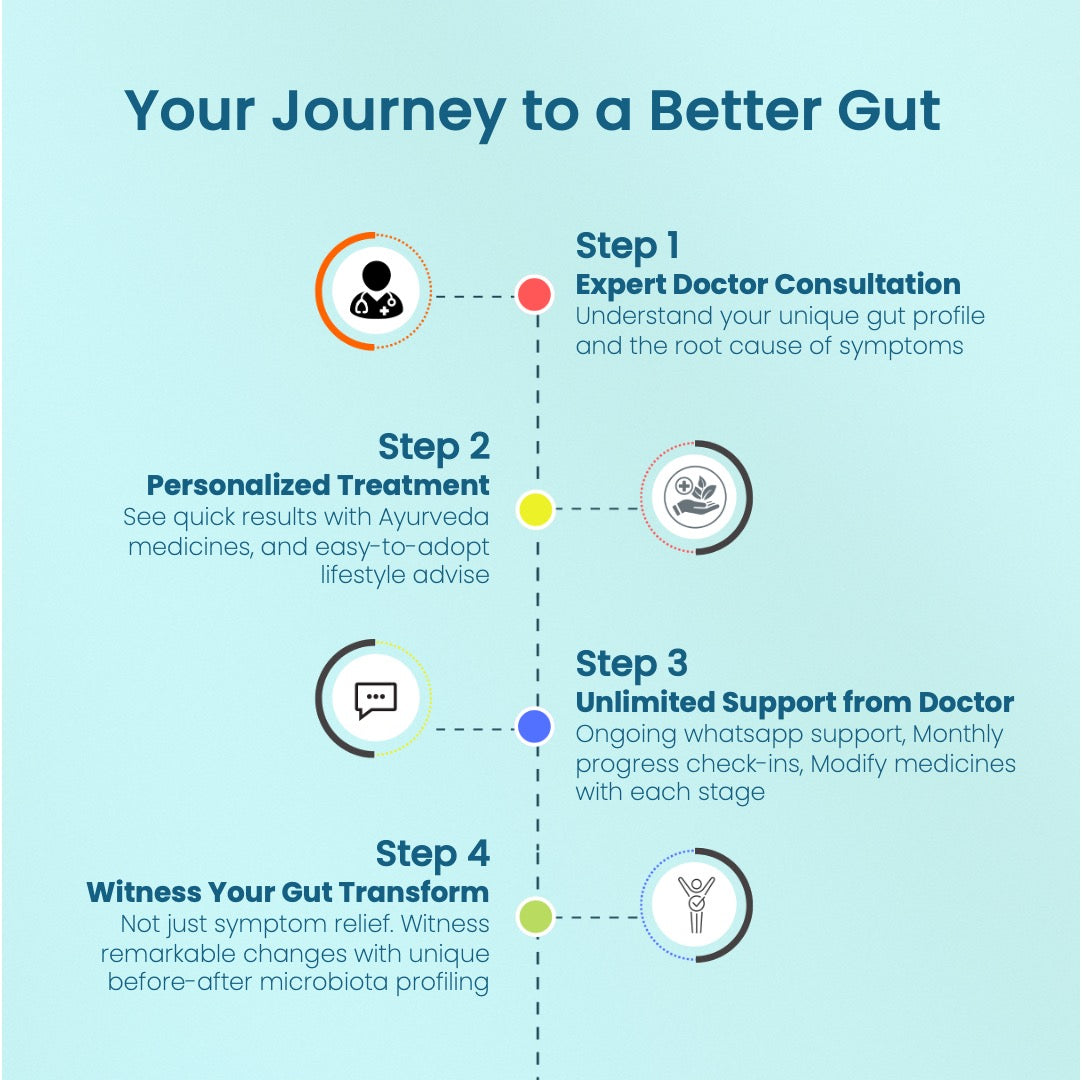Constipation
Constipation: Understanding and Finding Gentle Relief
What is Constipation? Understanding Different Patterns of Irregularity
What Causes Constipation - Exploring the Multifaceted Underlying Factors?
Dietary Factors
Lifestyle Factors
Other Medical Conditions
Medicine Side Effect
Ayurvedic Perspective
Risk Factors and Complications Associated with Chronic Constipation
Diagnosis and Treatment of Constipation
Best Practices to Manage Symptoms
When to Seek Medical Attention?
How is Chronic Constipation Diagnosed?
Conventional Treatment and Limitations
Reclaim Your Gut Health: Embrace Regularity and Comfort with Personalized gCODE Solutions
- Choosing a selection results in a full page refresh.
- Opens in a new window.



